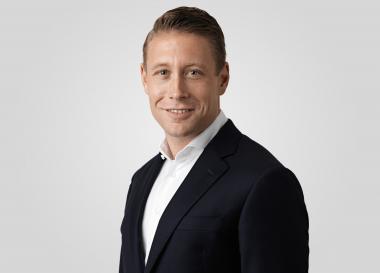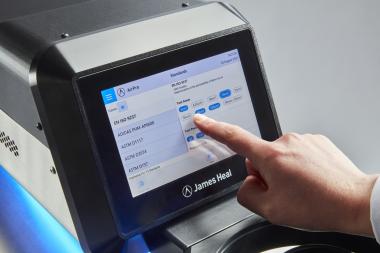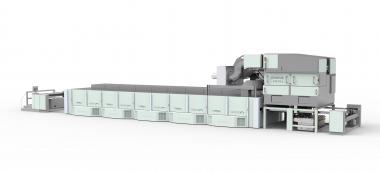Rieter: Further job cuts, outlook for 2023 confirmed
Rieter’s cumulative sales in the first nine months of 2023 amounted to CHF 1 092.9 million (2022: CHF 987.4 million), an increase of 11% compared to the prior-year period. In particular, supply bottlenecks eased slightly, which allowed more machines to be delivered than in the same period last year. Sales in the third quarter of 2023
were CHF 334.7 million (Q3 2022: CHF 366.8 million).
The Business Group Machines & Systems generated total sales of CHF 749.6 million in the first nine months of 2023 (+18%). The Business Group Components posted sales of CHF 206.8 million, 11% lower than in the corresponding period of the previous year, while the Business Group After Sales recorded growth of 13% to CHF 136.5 million in the first nine months of 2023.
Order intake in the reporting period was characterized by restrained investment in new machinery in almost all regions except China. Demand for consumables, wear & tear and spare parts continued to weaken due to the slowdown in spinning mill capacity utilization. Rising interest rates and high energy and raw material prices also had a dampening effect.
In this market environment, the Rieter Group received orders totaling CHF 452.2 million in the first nine months of 2023 (2022: CHF 1 095.8 million). In the third quarter of 2023, orders decreased by 44% year-on-year to CHF 127.2 million (2022: CHF 226.4 million).
Rieter expects the market to have bottomed out in the year 2023 and anticipates a gradual market recovery in the course of the 2024 financial year.
As of September 30, 2023, Rieter has an order backlog of around CHF 900 million (September 30, 2022: CHF 2 000 million). The current order backlog will allow good capacity utilization at the production facilities into the coming year. The cancellation rate in the reporting period was within the usual range, averaging around 5% of the order backlog, with a slight downward trend.
In July 2023, the Group launched the “Next Level” performance program aimed at strengthening sales excellence, sharpening customer focus, improving cost efficiency in production and optimizing fixed cost structures. By taking these measures, Rieter intends to create the basis for providing an even more agile response to the cyclical nature of the machinery business. The objective of the planned initiatives is to ensure the profitable and sustainable development of the group.
The performance program includes provisions for the net reduction of approximately 300 positions in overhead functions across the group, primarily in Germany and Switzerland. The consultation processes initiated with the employee representatives in Ingolstadt (Germany) and Winterthur (Switzerland) were completed in the third quarter of 2023. The majority of these workforce reductions are expected to be implemented by the end of December 2023.
Due to the current market situation, further market- and volume-related adjustments in the range of 400 to 600 positions will be necessary, mainly in production. However, the actual number of positions to be reduced depends on the order intake in the coming months.
Rieter continues to expect that the strategic and operational measures initiated will result in one-off restructuring costs of around CHF 45 to 50 million, which will impact earnings in the 2023 financial year.
Outlook for the full year 2023 confirmed
As announced on July 20, 2023, in view of the economic situation and the ongoing cyclical market weakness, Rieter continues to expect below-average demand for new equipment in the coming months. A revival is not anticipated until the end of 2023 at the earliest. Likewise, Rieter believes that demand for consumables, wear & tear and spare parts will not recover until towards the end of 2023.
For the full year 2023, Rieter expects an EBIT margin of around 5 to 7% (including positive special effects of less than 2%) and sales at the previous year’s level of around CHF 1.5 billion.
Rieter Holding AG















